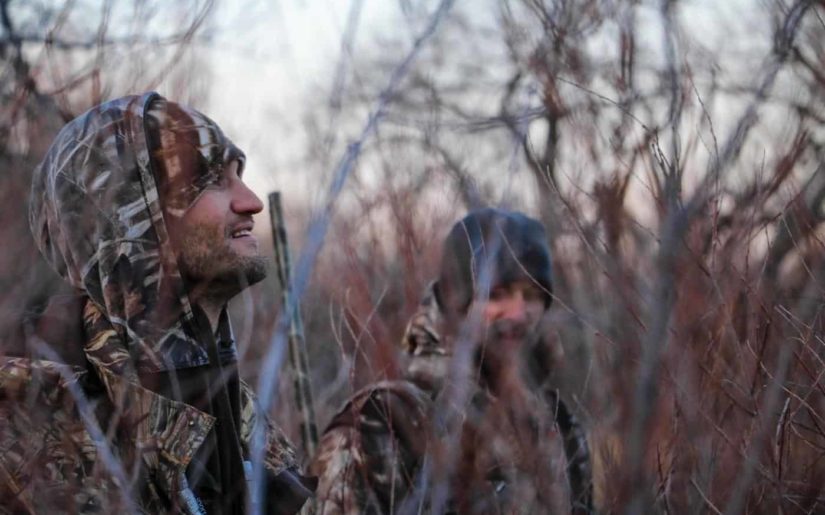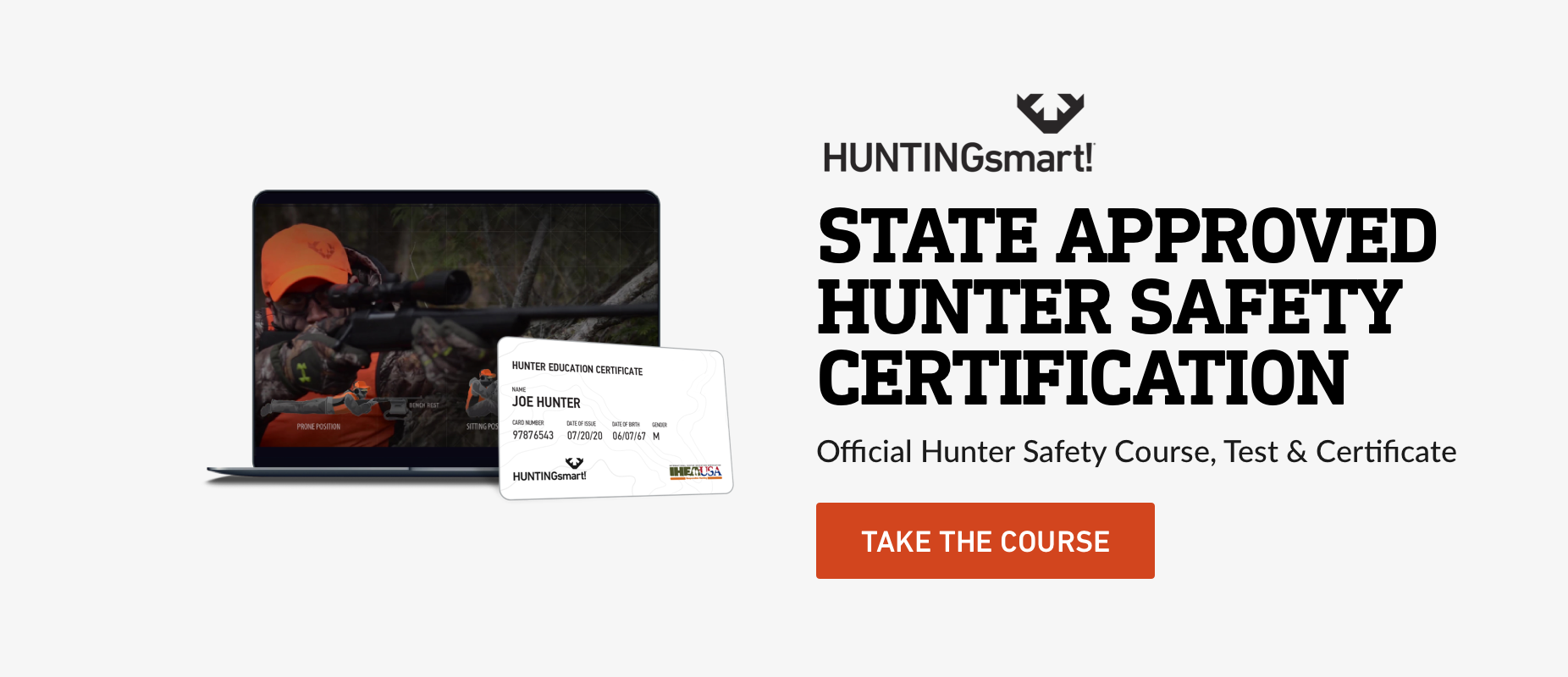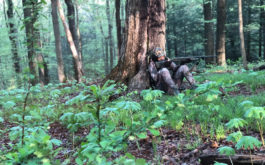At the heart of ethical hunting is the recognition that we need to have the conversation around how we hunt and why it matters.
In-person hunter training includes the in-field element where student hunters are taught 3 keys things. They are taught to ask themselves: is the situation and shot safe? Is the situation and shot legal? Is the situation and shot responsible and ethical? It is this third question that brings some degree of debate amongst hunters. Results can lead to bad publicity for the tradition and ultimately misconceptions about what hunting is all about.
Here are some key aspects of ethical hunting that every hunter should be aware of and adhere to.
Know and respect the law
Each state has its own rules and regulations around hunting, and for good reason. State parks’ departments are dedicated to making the best decisions underlying these rules and regulations based on first-hand information. Game laws are not arbitrary and are developed based on quantitative and qualitative data to protect game from over-harvest. A key component of wildlife conservation to maintain the balance of the ecosystem of any given area.
Not adhering to hunting seasons, trespassing, and exceeding bag limits are all examples of illegal hunting. The third is also referred to as “poaching”, and is illegal and unethical as it disregards both the law, wildlife, and conservation.
Rules and regulations are in place for a reason and breaking the law is inherently unethical. This is not to say that all legal hunting is ethical, and this will be looked at in this article as well.
Go for a ‘last chapter’ kill
The ethical and responsible hunter understands the importance of a quick and clean kill. This is done through a combination of skill and using the appropriate calibre and ammunition. Firearms that are powerful enough to kill the animal quickly to avoid unnecessary suffering.
Head and chest shots are the two key kill zones on an animal, leading to a rapid and humane death. Chest shots are ideal as they generally provide a larger surface area to target.
Hunters should ensure they have the skills necessary to achieve a quick and clean kill by practicing on targets. If an animal is wounded but not killed, the hunter must quickly take the kill shot.
Reasonable Range
With modern weapons technology many hunters are able to equip themselves with long range guns. These allow them to hunt from various long distances. There is some debate about the use of technology in giving the hunter an unfair advantage over the animal.
The notion of long distance shooting and fairness must consider the equipment. This includes the species being hunted, and the marksmanship of the hunter.
The distance a hunter fires from the animal becomes an ethical issue. It’s a hunter’s duty to get as close as possible to the target before shooting. Long distance shooting poses the risk that environmental factors could alter the course of the bullet or bow leading to a wound instead of a direct kill.
If there is not a certainty that the shot is going to kill the animal, it should not be taken. However there is also the question of fair chase and long distances. Eliminating the animal’s nature senses and instincts from the equation, calls into question the ethics and relevance of the hunt.
Fair Chase
The ethical concept of fair chase in hunting means that the hunter does not have an unfair advantage in the pursuit of an animal. Fair chase can be a subjective perception. There are however general rules that responsible hunters follow to ensure they are not taking advantage of a situation. For example, the vast majority of hunters will not pursue a caged, tied up, loured, cornered, treed, or drugged animal. Many hunters also take issue with hunting enclosed animals and the notion of “high fenced areas”. This is an area of controversy in the hunting world where animals cannot leave the enclosed area.
The Boone and Crockett Club defines fair chase as:
“the ethical, sportsmanlike, and lawful pursuit and taking of any free-ranging wild, native North American big game animal in a manner that does not give the hunter an improper advantage over such animals”
If the hunter is unsure about the ethics of a situation they should ask themselves, does the animal have a reasonable chance of escaping? Is this practice respectful to the animal? If the answer is no, then the situation could be regarded as an artificial hunt or ‘canned shoot’. Canned shoots give the hunter an unfair advantage where the animal has almost no chance of escape. In many States there are no laws around this type of bogus hunting. It becomes a question of ethics and sportsmanship related to enclosed land area and the ‘mental-captivity’ level of the animal.
The primary reason for hunting is for food. There are many misconceptions that hunters don’t use the entire animal that they have killed. That they leave the remains behind, and are only interested in taking a trophy.
Once the animal has been killed, quickly and discreetly transport it away from the kill site, out of respect for the animal and for others.
Try to use the entire animal. From head to hove, every part of an animal can be used in some way whether it’s for food or to create useful objects. Learn about butchering of the various animals you are hunting to ensure you retrieve every cut. Non-meat parts of the animal can also be used including the tongue, intestines, sweetbreads, and more.
Spread the Ethos
There are several organizations who work to help shape and navigate hunting ethics.
The Izaak Walton League describes its conservation policy and fair chase with an emphasis on prohibiting artificial or unnatural enhancement of game species. This includes the translocation of animals and breeding stock for shooting purposes and profit.
Orion, The Hunter’s Institute describes that “being an ethical hunter starts with recognizing that you, individually, command the behaviors and experience you undertake. And that responsible modern hunters must recognize that education, debate, and thoughtful examination are critical components of developing one’s understanding of his or her hunting ethic.”
The Boone and Crockett Club was originally established in 1887 to protect wildlife from market hunting. It promotes sustainability and a code of conduct for hunters with a mantra that states:
“exercise a personal code of behaviour that reflects favourably on your abilities and sensibilities as a hunter.”
Ultimately the Club frowns upon hunters having an “improper advantage” over the animals in any respect.
These organizations help inform hunters about conservation and ethics and provide a community for the promotion of ethical hunting and education. Get involved and spread the word!










